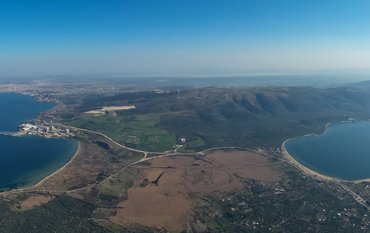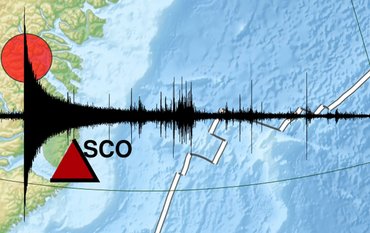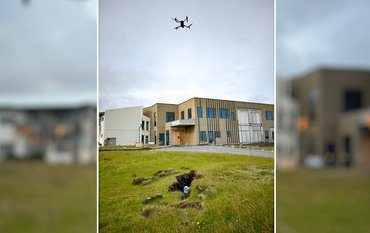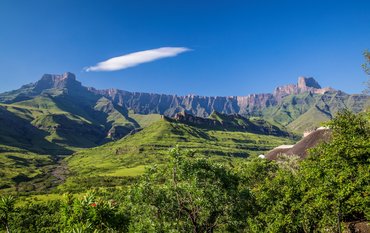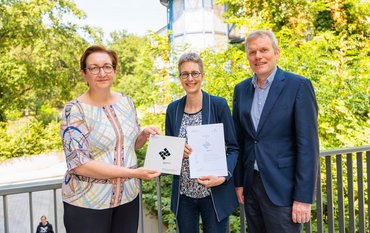In the light of water surpluses in certain regions of Asia, i.e. riverine floods and storm surges on the one hand and sometimes blatant water shortages on the other, new dimensions in the assessment and management of water-related multi-hazards were recently discussed at a joint conference of the Asian Oceania Geosciences Society and the European Geosciences Union. The scientists explicitly emphasised the value of transdisciplinary cooperation. Their contribution to the remarkable progress in water-related multi-hazard research in recent years must be particularly stated. Scientists from seven different institutions explain the reasons for this in a ‘Correspondence’ in the scientific journal 'Nature Sustainability'.
Structured comparative analyses
Transdisciplinary cooperation has made it possible to develop approaches for structured comparative analyses. These allow more general conclusions to be drawn in comparison with case studies. Flood and drought experts developed the paired-event approach for undertaking detailed analyses of the contribution of different drivers to changing impacts from floods and droughts. In the research area of compound flooding (floods of multiple flood causes and/or types), it was shown that the integration of new data science methods, including neural convolutional networks and data fusion techniques, enabled entirely new assessments. Thus, floods in nearly 3,500 river deltas could be assessed and, in this way, among other things, the causal influence of river basins as well as coastal drivers could be investigated jointly.
Interdisciplinary education
Transdisciplinary collaboration, e.g. between natural and data sciences, requires improved interdisciplinary training. Positive examples of this are the HEIBRiDS graduate programme and the Geo.X Young Academy. The HEIBRiDS graduate programme provides for joint doctoral supervision by a subject expert from the natural sciences and an expert from the data sciences. In the Geo.X Young Academy, postdocs and doctoral students develop a demand-oriented training programme on the topic of Geo.Data Science at the interface of geosciences and data sciences.
Adaptable risk management strategies
Through intensive collaboration between scientists and practitioners, it has become clear that it is neither efficient nor possible to protect potentially affected areas from the impacts of all events, including the most extreme ones. With climate change, the frequency and intensity of water-related multiple hazards will actually increase. As a result, new robust, adaptable risk management strategies are of great value. An example is the new coastal risk management strategy in Japan, where “tsunami level 1” determines the height of coastal protection against frequent tsunamis and other coastal hazards, while “tsunami level 2” is intended to ensure safe evacuation before extreme events.
In their Nature Sustainability Correspondece, the authors also point out that the creation of new scientific ideas can be supported in many ways, for instance, by providing adequate mid- to long-term funding for transdisciplinary research and by supporting improved interdisciplinary education.
Heidi Kreibich, Marleen C. de Ruiter, Katsuichiro Goda, Margreth Keiler, Anawat Suppasri and Bruce D. Malamud: Critical research in the water-related multi-hazard field. Published 21.12.2021. https://doi.org/10.1038/s41893-021-00833-0
Scientific contact:
Priv. Doz. Dr. Heidi Kreibich
Hydrology (4.4)
Group Leader
Telegrafenberg
Tel: +49 331 288-1550
E-Mail: heidi.kreibich@gfz-potsdam.de
Media contact:
Josef Zens
Head Public Relations
Telegrafenberg
14473 Potsdam
Tel.: +49 331 288-1040
E-Mail: josef.zens@gfz-potsdam.de



![[Translate to English:] [Translate to English:] Abror Gafurov von dem Schriftzug "Welcome to Azerbaijan" und den UN und COP Logos](/fileadmin/_processed_/2/5/csm_2024_11_Baku_COP29_Abror_Gafurov_1042faec82.jpeg)



![[Translate to English:] Martin Herold standing in front of the library on the Telegrafenberg](/fileadmin/_processed_/c/d/csm_Martin_Herold_d385ee4dd9.jpeg)
![[Translate to English:] Many people are listening to a presentation in the GFZ lecture hall.](/fileadmin/_processed_/c/a/csm_1_Bild1_hell_b9c0e9f5ed.jpeg)





![[Translate to English:] Both scientists sitting on stools in front of a wall of books in the Telegrafenberg library](/fileadmin/_processed_/6/6/csm_Buiter_Castell_DORA_4_e87cb1ea18.jpeg)
![[Translate to English:] Gruppenbild mit 4 Personen](/fileadmin/_processed_/8/d/csm_20241017_GFZ-Emmerman-Medal-005_web_reinhardtundsommer_21a414fa4a.jpeg)






![[Translate to English:] Ice landscape with five red tents](/fileadmin/_processed_/8/9/csm_Zeltlager_auf_dem_Eis_Urheberin_Jenine_McCutcheon_5ced2d523b.jpeg)





